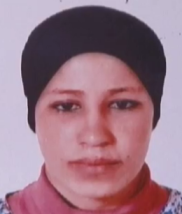 |
| Dr. Madawi Al-Rasheed - Picture from Fria Tidningen |
v Maghrebi women proved they are not
a homogeneous mass but are differentiated by class, education, and economic situation.
v Saudi women have opted to bargain
with the state because they were not able to unionize.
v
Arab uprisings led to breaking the taboo of women in the
public sphere, demonstrating and asking for rights.
v The Saudi regime wants us to
believe that we only have a problem of women.
v
I cannot accept that because I am a woman I am only allowed
to talk about women's issues.
v Saudi youth need to learn lessons
from Tunisian youth about how to seek rights by action.
Bil3afya: After the Arab Spring, how do you place women struggles in the
Gulf and Maghreb regions?
Madawi Al-Rasheed: The Arab uprisings brought about the
well-known struggles of women in both the Gulf and the Maghreb that was
fermenting in the twentieth century. In the Maghreb, women were part of
national struggles for liberation throughout the anti-colonial struggles but
failed to gain rights after decolonization with the exception of some measures
under the discourse of modernization and nationalism. They were disappointed
with the patronage of male national elites and felt betrayed by the state
feminism that dominated the policies of many Maghreb governments. They
participated in the recent uprisings throughout North Africa from Cairo to
Rabat, moving beyond slogans that touch them as women to national politics, and
demonstrating the limits of state feminism under dictatorships. They proved
that they are not a homogenous mass but differentiated by class, education and
economic situation. They showed diversity in solutions they sought to improve
the conditions of the entire nation rather than simply one section of society.
They were Islamists, liberals and ideologically non-committed individuals who
simply wanted freedom, dignity and justice. After the success of the revolts,
they reverted back to their niches as activists grounded in one position, which
threatens to divide not only the cause of emancipation but also the nation
itself. I hope the opening of the political systems allows women of all
political persuasions to voice their dissent without the threat of arrest or
even death.

